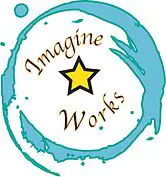
Why Drama and Theater are Important to Your Child's Development
The skills your child will learn through participating in theater at a young age can help shape him to be a confident, hardworking, and empathetic individual.

The skills your child will learn through participating in theater at a young age can help shape him to be a confident, hardworking, and empathetic individual.




Imagine Works Youth Theatre believes that every child can follow their dreams! We are a unique program in which our students perform musicals and play...

Upper West Side , Play On! Studios offers drama camps and classes on the Upper West Side for kids in grades Pre-K-8. Young actors will rehearse and perform in a full pr...

New York, NY Chain Links Theatre Academy is a performance-based enrichment program that teaches acting, theater games, writing, props, costumes, and improv skills....

Brooklyn, NY Come take ACTION classes or book a party at the STREB Lab for Action Mechanics (SLAM) the home of MacArthur Foundation "Genius Award" winning Action A...